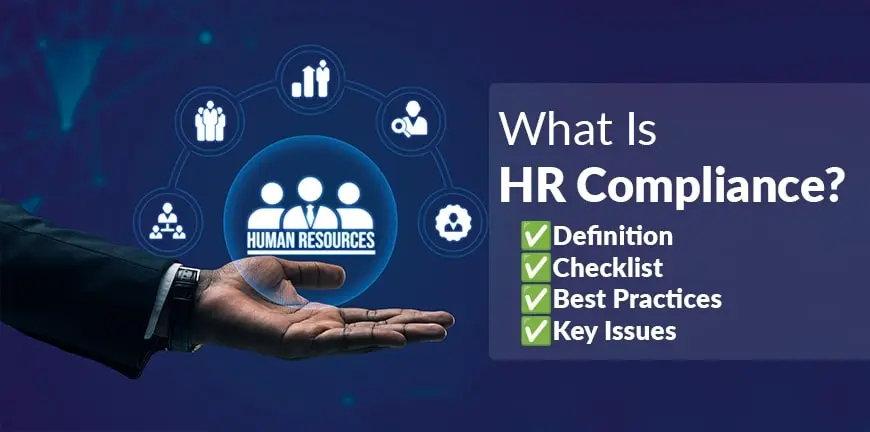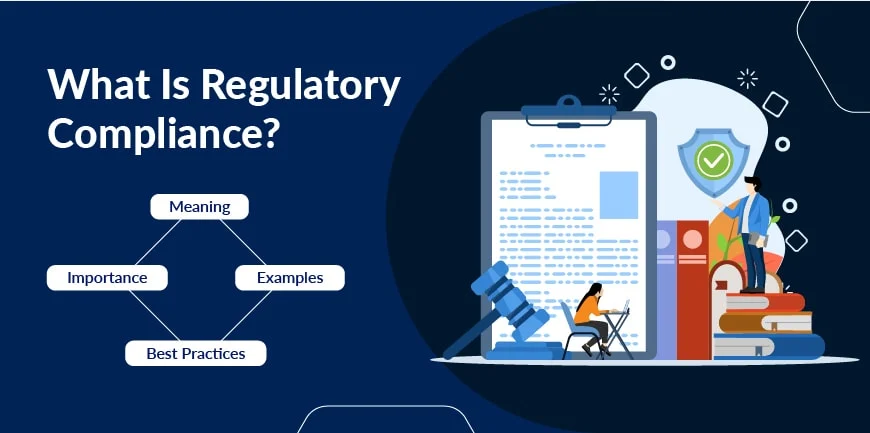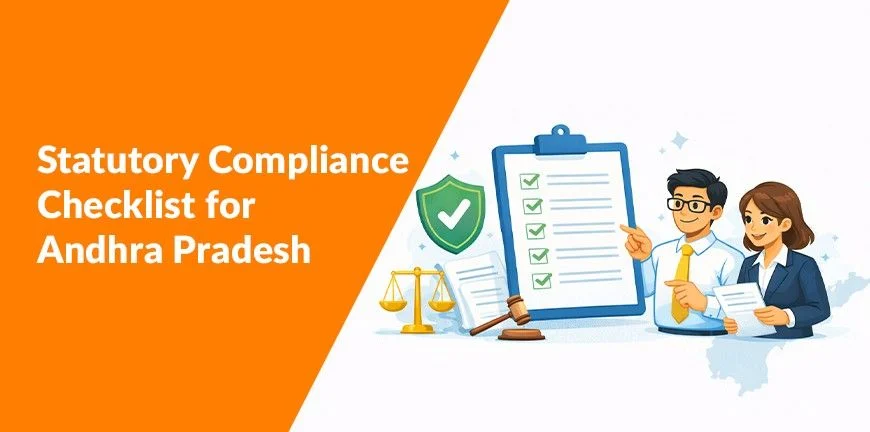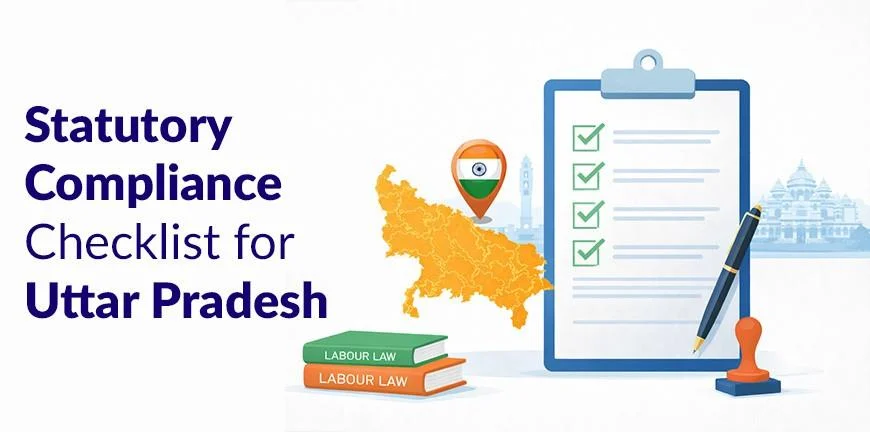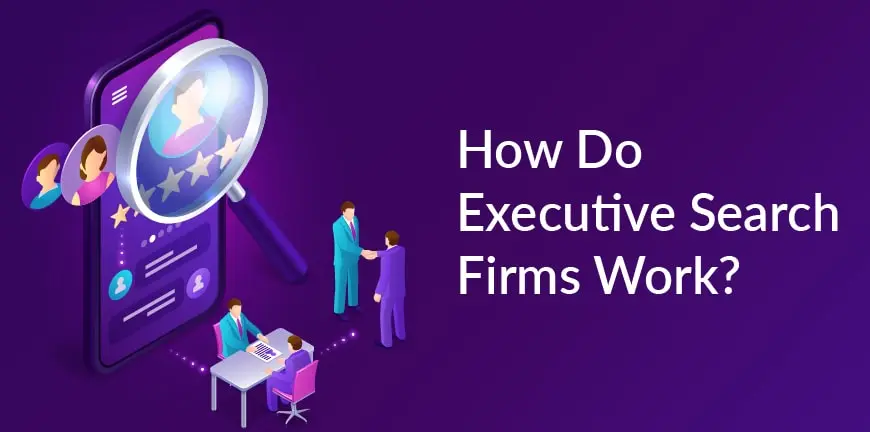
How Do Executive Search Firms Work?
16/04/2024
What Is a Passive Candidate? Definition, Tips, Challenges
20/04/2024- What Is HR Compliance and Why Does It Matter in 2026?
- What Are the Key Components of HR Compliance?
- What Are the Different Types of HR Compliance?
- Why is HR Compliance Important?
- What Is an HR Compliance Checklist?
- What Are the Main HR Compliance Laws in India?
- How Do You Ensure HR Compliance in Your Organization?
- How to Conduct an HR Compliance Audit (Step-by-Step)
- What Are HR Compliance Metrics to Track in 2026?
- What Are the Common HR Compliance Challenges?
- What are the Best HR Compliance Practices in 2026?
- Are you looking for an HR Compliance Partner?
- Key Takeaways
- Frequently Asked Questions
In 2026, HR compliance has evolved from a legal necessity to a strategic pillar for business success. With constantly amending labour laws, data privacy norms, & workplace standards, organizations must stay vigilant and proactive to avoid risks and foster trust.
This comprehensive guide on HR compliance will help companies understand key compliance requirements, adopt best practices, and leverage technology for efficient compliance management.
By mastering HR compliance, businesses can ensure transparency, safeguard employee rights, & create a compliant, future-ready workplace culture that supports sustainable growth and operational excellence.
What Is HR Compliance and Why Does It Matter in 2026?
HR Compliance is a legal framework that involves rules and regulations that an organization must adhere to protect the interests of employees and maintain a healthy employer-employee relationship.
HR compliance includes policies and procedures that ensure that your employment follows the rules and regulations as imposed by the government. Naturally, failure to comply with this policy leads to non-compliance, resulting in hefty fines and penalties for the organization.
Around 77% of global C-suite leaders view HR compliance as contributing significantly or moderately to overall company objectives, positioning it as a strategic enabler, not just a cost centre. Here are 5 reasons that make HR compliance paramount to secure a company’s future:
- Ensures adherence to evolving labour laws &digital workforce regulations.
- Protects organizations from costly penalties & legal disputes.
- Builds employee trust via transparent and ethical workplace practices.
- Enhances organizational reputation & employer brand in a competitive market.
- Promotes data security & privacy compliance amid increasing HR tech adoption.
What Are the Key Components of HR Compliance?
Here are 10 key components of HR compliance:
1. Employment Laws and Regulations
This HR legal compliance component covers adherence to labour laws, equal opportunity, minimum wages, & employee rights. This ensures organizations operate within legal frameworks & maintain fair, lawful workplace practices across all employment stages.
2. Workplace Health and Safety
It focuses on maintaining safe, hygienic, and hazard-free work environments, following Occupational Safety and Health (OSH) standards to prevent accidents, promote employee well-being, & reduce workplace-related risks.
3. Employee Data Protection and Privacy
This involves safeguarding employee personal & professional information in compliance with data protection laws. It ensures transparency, consent, & cybersecurity measures in digital HR systems and databases.
4. Compensation and Benefits Compliance
This hr compliance element ensures accurate salary disbursements, statutory deductions, social security contributions, & benefit administration aligned with government norms and internal HR policies for fairness and legal accuracy.
5. Anti-Discrimination and Equal Employment Practices
Such HR compliance best practices promote a diverse, inclusive workplace by enforcing non-discriminatory hiring, promotion, & pay practices in line with equality and anti-harassment laws.
6. Relations and Grievance Handling
It maintains compliance in addressing employee complaints, disputes, & disciplinary actions. This ensures fair, transparent, & legally compliant resolutions within organizational frameworks.
7. Training and Policy Implementation
It is a vital component of HR compliance roles and responsibilities and covers mandatory compliance training, policy updates, & awareness programs. Such regular training sessions keep employees and HR teams aligned with changing laws and company ethics.
8. Recordkeeping and Documentation
It requires accurate, updated records of employment contracts, payroll, attendance, & compliance reports to meet audit requirements and ensure operational transparency.
9. Workplace Diversity and Inclusion Compliance
It mandates policies supporting gender equality, accessibility, & non-discriminatory opportunities, aligning with evolving social, ethical, and corporate governance standards.
10. Remote Work and Digital Compliance
This component of HR compliance addresses legal and regulatory aspects of hybrid or remote work, including data security, digital monitoring, & cross-border employment norms.
What Are the Different Types of HR Compliance?
Here are the 7 different types of compliance in HR that companies must adhere to:
1. Statutory Compliance
Statutory compliance in HR covers all labour laws and government regulations, such as PF, ESI, gratuity, & minimum wages. Such a type of HR compliance ensures organizations meet all legal requirements & avoid penalties or legal disputes.
Companies in India failing to comply with requirements prescribed under statutory compliance in HR may face fines ranging from Rs. 1,000 to Rs. 10 lakhs (as per the Ministry of Labour and Employment, depending on the severity and specific Act)
2. Regulatory Compliance
This HR compliance ensures adherence to state, national, & industry-specific employment standards, including equal opportunity, workplace safety, & employee welfare norms applicable under Indian and international labour regulations.
3. Contractual Compliance
Contractual compliance focuses on maintaining compliance with terms outlined in employment contracts, vendor agreements, & third-party service contracts. This ensures fairness, transparency, & mutual accountability between parties.
4. Data and Privacy Compliance
Data and Privacy Compliance involves safeguarding employee data under laws like GDPR & India’s Digital Personal Data Protection Act by implementing strict data-handling, storage, & cybersecurity measures within HR processes. The global average cost of a data breach reached $4.44 million in 2025.
Given that HR data often contains highly sensitive PII (Personally Identifiable Information), a breach can be financially devastating, thereby compelling companies to achieve 100% data & privacy compliance through diligent efforts.
5. Compensation and Benefits Compliance
This compliance in HR ensures employees receive correct wages, bonuses, leaves, & statutory benefits on time while aligning payroll systems with tax, PF, and insurance laws for full transparency. Non-compliance with social security contributions (EPF, ESI) can result in financial penalties for delayed payments. For example, non-compliance with the ESI Act can attract penalties of up to 25% of the dues plus interest.
6. Workplace and Safety Compliance
Workplace and Safety Compliance addresses employee health, safety, & welfare under acts like the Factories Act, POSH Act, & Occupational Safety Code, ensuring a secure and harassment-free workplace environment.
7. Ethical and Policy Compliance
It involves implementing organizational codes of conduct, anti-discrimination, & anti-bribery policies to maintain ethical practices and a positive work culture aligned with company values.
Why is HR Compliance Important?
As an organization, if you are hoping to stay on top of the game, preserve your brand reputation, operate smoothly, reduce attrition, and hold a good employee-employer relationship, HR Compliance is necessary.
1. Legal liabilities are kept at bay
Employers are required to abide by certain HR laws and regulations. Failing to do so will result in heavy fines and other penalties.
2. Protection of employees
There is a set of regulations put in place by the HR team, as well as some that are dictated by the government bodies themselves, to protect employees from discrimination, harassment, and other forms of ill treatment in the workplace. Compliance with these rules is necessary for all employers and employees alike, failing which profound consequences are to be faced.
3. Creates a positive environment in the workplace
When there is a set of HR rules and regulations followed by everyone at the workplace, employers included, employees feel safe, secure, and valued. This boosts their productivity, reduces attrition, and is a winning situation for the company.
4. Upholding brand reputation
As a business, you must always make sure that you win the trust of your clients, customers, employees, and stakeholders. And to do that, you must ensure that your business operations and practices fall well within the HR rules and regulations and that you abide by them at any cost.
What Is an HR Compliance Checklist?
An HR Compliance Checklist is a systematic, comprehensive tool that helps HR teams to verify their employment policies, procedures, and documentation against mandatory local, state, and federal labour laws, mitigating legal & financial risk.
Here is the HR Compliance Checklist every organization must fulfil to achieve the best outcomes:
1. Recruiting and Interviewing
Compliance begins with recruiting. The first and foremost thing that a compliance checklist must include is information regarding the recruiting and interviewing process. Everything in the process must align with the job application and job description.
2. Hiring Procedures
The hiring process must be a well-rounded process, ensuring that the right candidate has been selected for the position. The process must be executed step by step with the provision of an offer letter, contracts, and the orientation program. During this process, the employee must be clearly informed about the compensation, benefits, legal requirements, etc. This will promote a positive work environment.
3. Policies and Procedures
A company follows a rulebook that has set policies and procedures that are defined to facilitate best work practices and smooth business operations. These policies and procedures are to be assessed from time to time and need to be updated as required.
4. Safety
In the HR compliance checklist, it’s important to map out measures and implement protocols that protect employees from any workplace hazards. This creates and promotes a safe working environment for all employees as it helps avoid accidents, illnesses, and injuries. This will ensure more attendance of employees and higher productivity.
5. Employee Handbook
As an organization, in the best interests of your organization as well as employees, there must be a proper code of conduct that everybody follows. Not only does this ensure a formal workplace environment where everyone is treated alike, but it can also avoid unnecessary hassles and issues. An employee handbook must have dress code policies that define what is allowed and what is not allowed for both genders, and other mandatory rules that employees must follow when in the workplace.
6. Training
There are certain things that your management should be aware of and must be trained to implement.
- Counselling and letting go of employees.
- Performance appraisals.
- Managing problematic employees.
- Trained in protecting employees against diversity issues and harassment.
7. Unemployment Benefits
As an organization, you must provide certain relief and benefits to employees who are terminated in case of low job performance. This excludes those employees who serve their notice period, availing all the benefits they are liable to and leave on their own accord. This is important not only on humanitarian grounds but also in terms of boosting your company’s morale and demonstrating commitment towards your employees, which will drastically reduce attrition rates and boost productivity.
What Are the Main HR Compliance Laws in India?
Here are the key HR compliance laws applicable in India:
| HR Compliance Law | Description |
| The Factories Act, 1948 | Ensures worker safety, health, & welfare in factories, regulating working hours, conditions, and employer responsibilities. |
| The Employees’ Provident Funds and Miscellaneous Provisions Act, 1952 | Mandates retirement savings via provident fund contributions by employers and employees for long-term financial security. |
| The Payment of Wages Act, 1936 | Regulates the timely payment of wages without unauthorized deductions, ensuring fair compensation for all employees. |
| The Minimum Wages Act, 1948 | Prescribes minimum wage rates to prevent labour exploitation & guarantee workers’ basic livelihood needs. |
| The Payment of Bonus Act, 1965 | Governs annual bonus payments to eligible employees based on profits or productivity. |
| The Payment of Gratuity Act, 1972 | Provides financial benefit to employees completing five or more years of continuous service upon exit. |
| The Employees’ State Insurance Act, 1948 | Offers medical, sickness, and maternity benefits through employer and employee contributions under ESIC. |
| The Maternity Benefit Act, 1961 | Grants paid maternity leave, job protection, and health benefits for women during and after childbirth. |
| The Equal Remuneration Act, 1976 | Ensures equal pay for equal work and prevents gender-based discrimination in wages and employment. |
| The Industrial Disputes Act, 1947 | Regulates dispute resolution, layoffs, retrenchments, and promotes harmonious industrial relations. |
| The Shops and Establishments Act | Governs working hours, holidays, and employment conditions in commercial establishments across states. |
| The Sexual Harassment of Women at Workplace (Prevention, Prohibition and Redressal) Act, 2013 | Mandates internal complaints committees and preventive measures for a safe, harassment-free workplace. |
| The Contract Labour (Regulation and Abolition) Act, 1970 | Regulates employment of contract workers, ensuring fair treatment, wages, and working conditions. |
| The Apprentices Act, 1961 | Promotes skill development by regulating the training of apprentices in various industries. |
| The Code on Wages, 2019 | Consolidates wage, bonus, and equal pay laws for simplified compliance and uniform application nationwide. |
How Do You Ensure HR Compliance in Your Organization?
Here are 5 ways companies can ensure HR compliance throughout the organization:
1. Implement a Centralized HR Policy Framework
Develop standardized HR policies aligned with labour laws & communicate them organization-wide to ensure uniform compliance practices & legal consistency.
2. Conduct Regular Compliance Audits and Reviews
Schedule periodic audits (every 3 months at least) to identify policy gaps, assess adherence, & deploy corrective actions to mitigate legal risks and penalties.
3. Use HRMS for Automated Compliance Management
Adopt digital HR systems to automate payroll, leave, & statutory filings, ensuring timely, accurate, and traceable compliance operations.
4. Train HR Teams and Managers Continuously
Provide regular compliance training to HR professionals & department heads to keep them updated with evolving laws & best practices.
5. Engage Legal and Compliance Experts
Consult top external compliance specialists or legal advisors like Alp Consulting to interpret complex regulations, manage audits, & strengthen your compliance framework effectively.
How to Conduct an HR Compliance Audit (Step-by-Step)
Here are 7 key steps involved in executing the HR compliance audit checklist:
Step 1: Define Audit Scope and Objectives
Identify areas to audit, such as payroll, contracts, safety, or data privacy. Next, set clear objectives for compliance assessment, improvement, & legal risk mitigation across HR processes.
Step 2: Review Applicable Laws and Regulations
Analyse all central, state, & industry-specific labour laws, ensuring the organization’s HR policies, benefits, & documentation align with mandatory legal frameworks and updates.
Step 3: Collect and Review Documentation
Gather all up-to-date employee records, payroll reports, leave data, contracts, & HR policies. Check completeness, accuracy, & compliance adherence across all operational and documentation levels.
Step 4: Conduct Employee and Management Interviews
Engage with HR staff, managers, & employees to identify practical gaps, understand compliance awareness levels, and evaluate how policies are implemented at the ground level.
Step 5: Identify Non-Compliance Areas
Compare current practices with legal standards to identify policy deviations, reporting errors, or missing documentation. Also, categorize findings by severity & potential regulatory risk.
Step 6: Create a Compliance Action Plan
Draft an action plan to correct non-compliance areas with clear timelines, responsibilities, and training initiatives to ensure future compliance sustainability.
Step 7: Monitor and Report Progress
Regularly track improvements post-audit, report outcomes to management, & schedule periodic follow-ups to ensure continuous HR compliance & legal adherence.
What Are HR Compliance Metrics to Track in 2026?
Here are 6 key HR compliance metrics companies must track diligently in 2026:
1. Payroll Accuracy Rate
It tracks the percentage of error-free payroll cycles processed, reflecting compliance with payment timelines, taxation, and statutory deductions to maintain employee trust & satisfaction.
2. Statutory Filing Timeliness
This measures how promptly PF, ESI, TDS, & other filings related to statutory compliance in HR are submitted to authorities, preventing penalties & ensuring regulatory consistency across HR operations.
3. Employee Grievance Resolution Rate
This type of HR compliance metric evaluates how efficiently HR resolves employee grievances, compliance issues, & harassment complaints, indicating organizational responsiveness & ethical workplace culture.
4. Policy Compliance Rate
This type of HR legal compliance metric calculates the percentage of employees adhering to internal policies such as POSH, data privacy, & attendance, ensuring consistency and discipline across the workforce.
5. Audit Non-Compliance Rate
It tracks the ratio of violations or missing documents identified during HR audits. This HR compliance metric helps HR teams assess legal risk exposure and process improvements needed.
6. Compliance Training Completion Rate
It monitors how many employees complete compliance-related training programs, reflecting awareness levels, risk reduction, and proactive regulatory readiness in the organization.
What Are the Common HR Compliance Challenges?
Here are the 5 key HR compliance challenges faced by companies in 2026:
1. Keeping Up with Constantly Changing Regulations
Frequent amendments to labour laws, wage codes, & data protection regulations make it arduous for HR teams to stay updated & maintain consistent HR legal compliance across all operational levels.
2. Managing Multi-State and Remote Workforce Compliance
Organizations operating across multiple states or employing remote workers face complex, region-specific compliance requirements, making documentation, payroll, & recordkeeping increasingly challenging to manage accurately.
3. Inadequate Documentation and Recordkeeping
Failure to maintain proper employee records, contracts, & compliance filings often leads to audit failures, penalties, or legal disputes with regulatory authorities.
4. Limited Awareness and Training Among HR Teams
Insufficient training on new compliance requirements can result in unintentional violations, misinterpretation of laws, & poor execution of critical HR policies and procedures.
5. Integration of Technology and Data Security Risks
Adopting digital HR systems without robust data security measures may expose employee information, leading to privacy breaches & non-compliance with emerging data protection laws.
What are the Best HR Compliance Practices in 2026?
Here are 5 HR compliance best practices that companies must deploy to get the best results:
1. Establish a Comprehensive Compliance Framework
Create detailed HR compliance manuals outlining procedures, responsibilities, & escalation paths to ensure organization-wide adherence to labour laws & ethical practices.
2. Automate Compliance Processes Using Technology
Use HRMS or compliance software to automate payroll, statutory deductions, & document tracking for accuracy, efficiency, and timely updates.
3. Regular Internal Audits and Risk Assessments
Conduct routine compliance audits to identify gaps, correct discrepancies, & proactively mitigate legal and financial risks before external regulatory inspections.
4. Continuous Learning and Legal Updates
Keep HR personnel informed through workshops, legal bulletins, & professional training on emerging compliance laws, wage codes, and labour reforms.
5. Transparent Employee Communication and Documentation
Maintain open communication with employees regarding HR policies, leave entitlements, & compliance obligations, ensuring transparency and reducing misunderstandings or disputes.
Are you looking for an HR Compliance Partner?
In today’s rapidly changing regulatory realms, staying compliant can be challenging for any organization. Partnering with ALP Consulting ensures complete peace of mind. With nearly 3 decades of experience in HR, payroll, & compliance, IT, GCC, managed services, etc, Alp Consulting helps businesses navigate complex labour laws, manage audits, and maintain accurate records seamlessly.
Our team of experts leverages advanced technology & in-depth legal knowledge to ensure end-to-end compliance across locations. By partnering with us, companies can focus on growth while ensuring 100% compliance, transparency, and risk-free HR operations.
Key Takeaways
- HR compliance safeguards organizations from legal risks, financial penalties, and reputational damage.
- Staying updated with evolving labour laws ensures ethical, transparent, and employee-friendly workplaces.
- Automation and HRMS tools simplify compliance tracking, reporting, and documentation accuracy.
- Regular HR compliance audits and training programs enhance compliance awareness and operational efficiency.
- Partnering with experts like ALP Consulting ensures 100% HR compliance and sustainable business growth.
Frequently Asked Questions
1. What is HR Compliance?
HR compliance definition is straightforward and states that, “ HR compliance is a standard approach that ensures that organizations follow labour laws, policies, and ethical practices governing employee rights, benefits, safety, and workplace standards.
2. Why is HR Compliance Important?
HR compliance protects businesses from legal risks, promotes fairness, ensures transparency, & strengthens employee trust and organizational reputation.
3. What are the Key HR Compliance Laws in India?
Key HR compliance laws in India include the Factories Act, EPF Act, ESI Act, Payment of Wages Act, and Maternity Benefit Act.
4. What is Statutory vs Regulatory Compliance?
Statutory compliance in HR follows mandatory government laws, while regulatory compliance adheres to specific industry standards or governing body rules.
5. How Can Companies Stay Compliant in 2026?
To achieve 100% HR compliance, companies can adopt HR technology, conduct audits, update policies, train teams, and partner with experts like Alp Consulting.

Rajkumar Shanmugam
Rajkumar Shanmugam is the Head of HR at ALP Consulting, bringing over 19 years of comprehensive HR leadership experience across India and international markets. His expertise spans talent acquisition, employee relations, performance management, compliance, and HR transformation. Rajkumar has a proven track record of driving people-centric initiatives, enhancing workplace culture, and aligning HR strategy with business goals. With extensive experience in US staffing operations and global mobility, he continues to lead organizational excellence through innovation and employee engagement.

